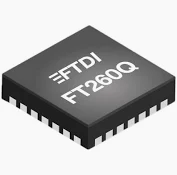FTDI Chip: Everything You Need to Know
When it comes to USB communication and serial interface technologies, FTDI chips are among the most reliable and widely used components. Whether you’re an electronics enthusiast, a professional engineer, or just getting started in the world of hardware development, understanding FTDI chips is essential. In this comprehensive guide, we’ll cover everything you need to know about FTDI chips, their applications, advantages, and how they can enhance your projects.
What is an FTDI Chip?
FTDI (Future Technology Devices International) chips are integrated circuits designed to convert between USB and serial interfaces. These chips are highly valued for their reliability, ease of use, and compatibility with various operating systems. FTDI offers a range of chips, each tailored to specific applications, ensuring seamless data transfer between devices.
Key Features and Benefits of FTDI Chips
1. Easy USB to Serial Conversion
FTDI chips simplify the process of converting USB signals to serial signals, making them ideal for applications requiring communication between a computer and a peripheral device.
2. Wide Compatibility
FTDI chips are compatible with multiple operating systems, including Windows, macOS, and Linux. This ensures that your devices can communicate effectively regardless of the platform.
3. High Reliability
Known for their robust performance, FTDI chips offer reliable data transfer rates and are less prone to errors, making them a preferred choice for critical applications.
4. Plug and Play
With built-in drivers and support for plug-and-play functionality, FTDI chips make it easy to connect and start using your devices without the need for complex configurations.
5. Versatile Applications
FTDI chips are used in a variety of applications, including industrial automation, medical devices, consumer electronics, and more. Their versatility makes them a valuable component in many fields.
Applications of FTDI Chips
FTDI chips facilitate reliable USB communication, making them essential in various applications. Here are some common uses:
Microcontroller Programming: Use FTDI chips to program microcontrollers, offering a straightforward method for uploading code and debugging.
USB to RS232/RS485 Converters: Convert USB signals to RS232 or RS485 signals with these chips, commonly used in industrial communication systems.
Embedded Systems: FTDI chips play a crucial role in embedded systems, enabling seamless communication between the main controller and peripheral devices.
Consumer Electronics: Ensure smooth data transfer and communication in consumer electronics like printers and gaming consoles with FTDI chips.
Why Choose FTDI Chips?
Choosing FTDI chips for your projects comes with numerous advantages. Their proven track record of reliability, extensive compatibility, and ease of use make them a go-to solution for developers and engineers. Additionally, FTDI provides comprehensive documentation and support, ensuring that you have all the resources needed to integrate these chips into your designs successfully.
Conclusion
FTDI chips play a crucial role in modern electronics, enabling efficient and reliable USB communication across a wide range of applications. Whether you’re working on a hobby project or a professional development, understanding and utilizing FTDI chips can significantly enhance your work. Explore our selection of FTDI chips at ZXH Chip and find the perfect solution for your next project.
For more information and to browse our range of FTDI chips, visit ZXH Chip.
FAQ
Q1: What does FTDI stand for?
A: FTDI stands for Future Technology Devices International, a company known for its USB communication and serial interface solutions.
Q2: What are the main applications of FTDI chips?
A: You can use FTDI chips for microcontroller programming, USB to RS232/RS485 conversion, embedded systems, and consumer electronics.
Q3: Are FTDI chips compatible with all operating systems?
A: Yes, FTDI chips work with Windows, macOS, and Linux.
Q4: What makes FTDI chips reliable?
A: FTDI chips deliver robust performance, reliable data transfer rates, and minimal error rates, making them ideal for critical applications.
Q5: How easy is it to use FTDI chips?
A: FTDI chips support plug-and-play functionality with built-in drivers, making them easy to use without complex configurations.